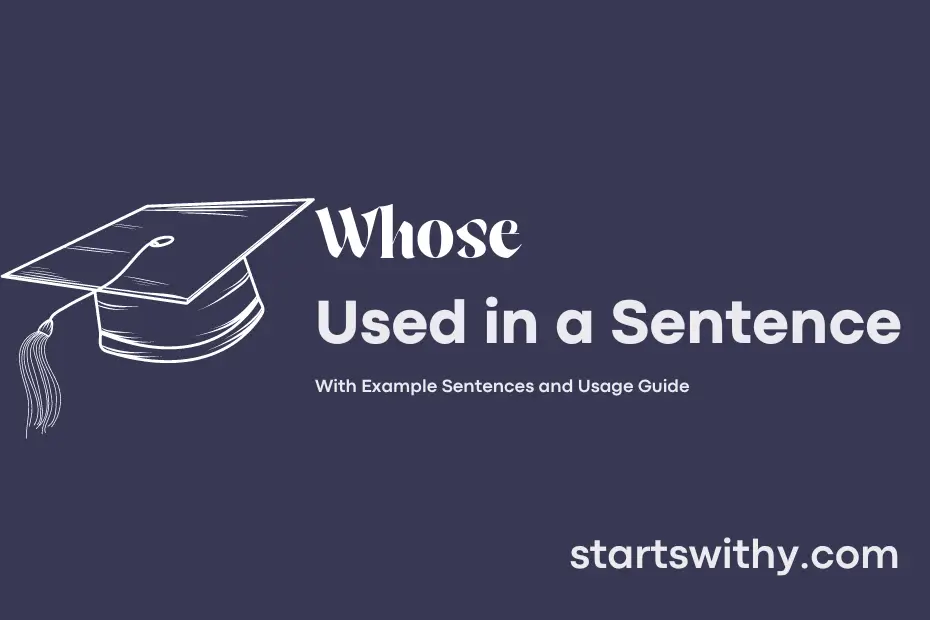Do you often find yourself confused about when to use “whose” in a sentence? “Whose” is a possessive pronoun that is used to indicate ownership or association with a person or thing.
It is important to distinguish “whose” from “who’s,” which is a contraction of “who is” or “who has.” “Whose” is used to introduce a clause or phrase that provides more information about a noun, allowing sentences to convey specific details about ownership or relationships.
7 Examples Of Whose Used In a Sentence For Kids
- Whose lunchbox is this?
- The boy whose name is Rahul likes to play football.
- Whose teddy bear is on the table?
- She is a girl whose favorite color is pink.
- Whose pencil case is missing?
- The teacher asked, “Whose notebook is on the floor?”
- The little girl whose birthday is today is wearing a pretty dress.
14 Sentences with Whose Examples
- Whose notebook is this lying on the table?
- Can you tell me whose project is due next week?
- Do you know whose water bottle this is?
- Whose turn is it to present in the group discussion?
- Let’s ask the professor whose assignment got the highest grade.
- I’m not sure whose laptop charger this is.
- Whose idea was it to host a study group tonight?
- Can you remind me whose turn it is to bring snacks for the group?
- I wonder whose idea it was to change the exam schedule.
- We should find out whose textbook has the chapter we need to study.
- I can’t remember whose calculator I borrowed for the math exam.
- Whose idea was it to organize a college festival this weekend?
- Let’s find out whose suggestion was selected for the seminar topic.
- Whose research paper got published in the college journal?
How To Use Whose in Sentences?
To use the word whose in a sentence, you must first determine the possessive nature of the noun you are referring to.
Whose is used to indicate possession or ownership. For example, “Whose book is this?” In this sentence, whose is used to ask about the owner of the book.
When constructing a sentence with whose, keep in mind that it is usually followed by a noun. For instance, “Whose car is parked outside?” In this example, whose is followed by the noun “car” to show possession.
To form a question with whose, start by using the word at the beginning of the sentence followed by the noun in question. For instance, “Whose hat did you borrow?” In this sentence, whose is used to ask about the owner of the hat that was borrowed.
Remember that whose is used to inquire about possession or ownership. It is an interrogative pronoun used to ask about the person or thing that possesses something.
In summary, whose is a word used to denote possession and should be followed by a noun in a sentence when asking about ownership. With practice, using whose will become easier and more natural in your writing and conversations.
Conclusion
In writing, sentences with “whose” are commonly used to show possession or association with a person or thing. By incorporating “whose” into a sentence, the author can provide important information about the ownership or relationship of the noun in question. For example, “She is the girl whose book I borrowed” clearly denotes the possessive relationship between the girl and the book.
Using “whose” enhances the clarity and specificity of a sentence by indicating the connection between two elements. It is a powerful tool for communicating relationships and identifying important attributes within a sentence. Incorporating “whose” can help writers convey information effectively and ensure that readers understand the connections between different parts of a sentence.



